SUMMARY
This is AI generated summarization, which may have errors. For context, always refer to the full article.
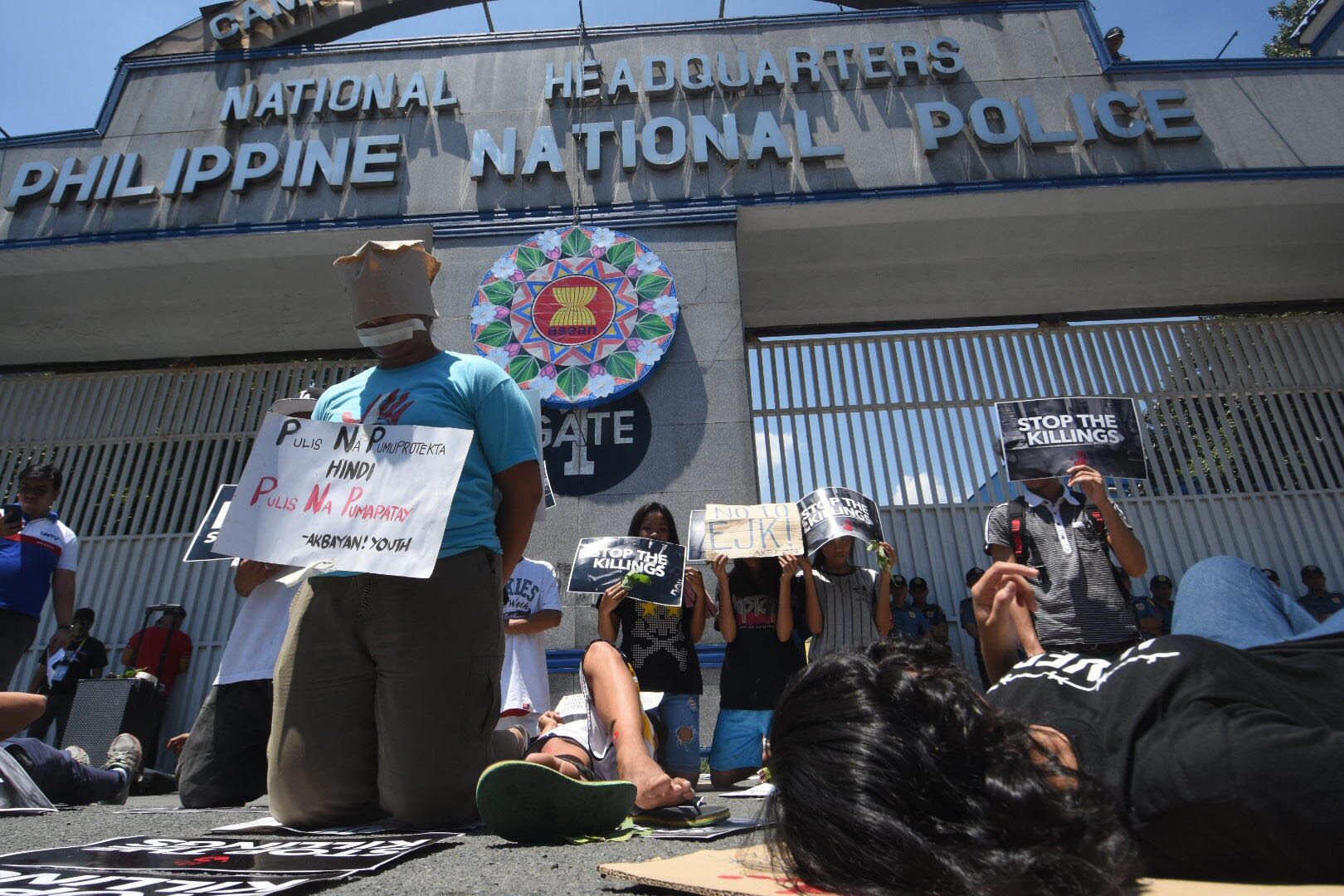
Tougher measures from international independent bodies are needed to put an end to the widespread killings and human rights abuses in the Philippines under President Rodrigo Duterte.
In a report released on Friday, September 25, Amnesty International emphasized that all eyes should be on the United Nations Human Rights Council (UNHRC) and the International Criminal Court (ICC) 4 years into the Duterte administration.
Amnesty said that stronger measures from UNHRC and ICC are “required to end human rights violations in the country, provide justice and reparations for thousands of families of victims, and hold those responsible to account.”
“It’s obvious the Duterte administration has no intention of delivering justice to thousands of bereaved families, all while the President repeatedly incites violence and promises to protect perpetrators,” Rachel Chhoa-Howard, Amnesty International’s Philippines Researcher, said in a statement.
Since 2016, the Duterte government is consistently criticized for its policies and violent rhetoric that lead to human rights abuses, including his anti-illegal drug campaign. (READ: The Impunity Series)
Philipipne National Police data show that there have been 7,884 deaths from police operations as of August 31, 2020. This does not include the thousands killed by still unidentified suspects, which groups estimate to reach more than 27,000. (READ: Unreal numbers: Around 2,000 drug war deaths missing in Duterte gov’t tally)
‘Preliminary step to killing’
The report detailed persistent violations even during the raging pandemic, including drug war-related deaths, attacks against activists, and further harassment of the media.
Drug-related deaths exist alongside threats and killings of human rights defenders over the past 4 years. The risks faced by activists and critics of the governments also increased with the recent enactment of the anti-terror law. (READ: Duterte ushers in new level of danger for activists, human rights defenders)
Amnesty also highlighted in the report the rising violence in Negros Island. Research by the group found that human rights violations in the island increased since peace talks collapsed in 2018.
Several incidents of red-tagging were reported and observed to become “a means to try to quash support for insurgents.”
A local official interviewed by Amnesty for the report, said that “red-tagging is the preliminary step to killing.” Victims included peasant leaders, farmers, and activists. (MAP: Negros killings since 2016)
UNHRC member-states ‘must not be fooled’
The Department of Justice in July said it has established an inter-agency panel that is expected to reinvestigate the deaths in police operations.
But this move has not been positively received by many, given the track record of the Duterte administration when it comes to reports of extrajudicial killings, including the President himself threatening experts and human rights groups. (READ: 4 years on, climate of fear and impunity blocks justice for Duterte’s drug war victims)
In its report, Amnesty tagged the panel as “the latest attempt by the Duterte administration to evade international scrutiny rather than a genuine effort to end human rights violations and ensure justice and reparations for all victims.”
According to Chhoa-Howard, it now falls on the UNHRC to mandate a strong and independent investigation body since “a panel announced by the government is not credible and cannot deliver justice.” (READ: More killings feared if UN Human Rights Council fails to act vs impunity in PH)
The ongoing 45th session of UNHRC is vital, according to human rights groups, especially in the aftermath of a scathing report by UN rights chief Michelle Bachelet released in June.
“The timing and circumstances of [the inter-agency] panel’s announcement, together with the lack of specifics provided to the public, is clearly designed to shield the government from scrutiny,” Chhoa-Howard said. “States at the [UNHRC] must not be fooled into taking this initiative seriously.”
Clear message
With the dire situation in the Philippines, Amnesty urged UNHRC to independent investigation mechanism and for the ICC to “expedite its examination.”
“Domestic accountability measures are flawed and have no prospect of bringing an end to violations when killings continue to be encouraged from the very top,” Amnesty said.
The ICC, meanwhile, is expected to reach a decision in 2020 on whether or not to open a formal investigation.
While international mechanisms will not bring back victims to life, Amnesty’s report said “it can prevent more deaths, and spare more families, already desperately poor, from years of pain and trauma.
“The Human Rights Council must not back down now,” Chhoa-Howard said. “It must act to prevent further deaths and send a clear message to the perpetrators, and to the government itself: the world is watching and we will not let impunity prevail.” – Rappler.com
Add a comment
How does this make you feel?
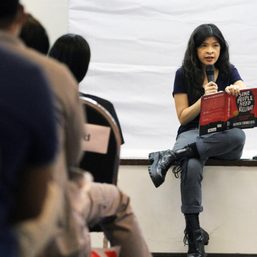

![[OPINION] ‘Some people need killing’](https://www.rappler.com/tachyon/2024/04/tl-some-people-need-killing-04172024.jpg?resize=257%2C257&crop_strategy=attention)



![[The Slingshot] Alden Delvo’s birthday](https://www.rappler.com/tachyon/2024/04/tl-alden-delvo-birthday.jpg?resize=257%2C257&crop=263px%2C0px%2C720px%2C720px)
![[EDITORIAL] Ang low-intensity warfare ni Marcos kung saan attack dog na ang First Lady](https://www.rappler.com/tachyon/2024/04/animated-liza-marcos-sara-duterte-feud-carousel.jpg?resize=257%2C257&crop=294px%2C0px%2C720px%2C720px)
![[Newsstand] Duterte vs Marcos: A rift impossible to bridge, a wound impossible to heal](https://www.rappler.com/tachyon/2024/04/duterte-marcos-rift-apr-20-2024.jpg?resize=257%2C257&crop=278px%2C0px%2C720px%2C720px)

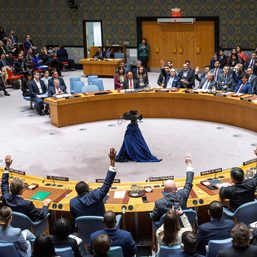
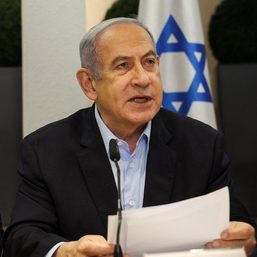
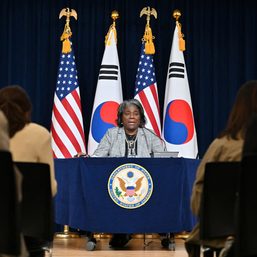

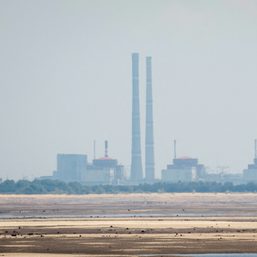
![[Rappler’s Best] Patricia Evangelista](https://www.rappler.com/tachyon/2024/04/unnamed-9-1.jpg?resize=257%2C257&crop=486px%2C0px%2C1333px%2C1333px)

There are no comments yet. Add your comment to start the conversation.